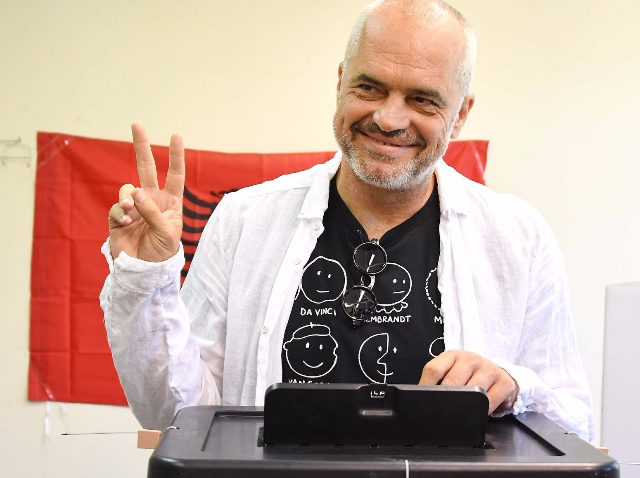Each week we bring you the ten most important pieces of news from Eastern Europe.
Compiled by: Hristo Voynov and Kristijan Fidanovski
- Germany urges Croatia and Slovenia to accept upcoming border arbitration decision
In November 2009, Croatia and Slovenia signed a bilateral agreement to respect any decision made by international courts with regards to their border arbitration dispute. The agreement was crucial to Slovenia agreeing to Croatia’s later accession to the EU. It provides for a short, six-month timeframe for the implementation of the long-awaited court decision, which is expected this Thursday.
- FIDESZ passes its controversial billboard advertising law
The law tightens restrictions on political advertisement by limiting ads to election season and increasing regulations in an attempt to make the ads more transparent. However, it is seen as an attempt to silence the far-right party Jobbik’s campaign calling out FIDESZ’ corruption. Jobbik has vowed to fight the law. It passed after being initially rejected, and Jobbik argument will be that the law is invalid following modifications of the law made excessive adjustments beyond the original issues surrounding the law, and that because it deals with party financing, the law needed two thirds of the vote to pass, as opposed to a simple majority.
- The Dutch state found partly liable for Srebrenica
30 per cent of any compensations awarded to Srebrenica victims’ families will be covered by the Dutch government after this ruling by a Dutch appeals court. The ruling only refers to the 300 Bosniaks (rather than the overall 8000 victims of the genocide) who were denied access to the UN peacekeepers’ base. According to the ruling, the peacekeepers “knew or should have known” that these 300 people were in immediate mortal danger.
- Eastern Europe “betrays” the Europe Union
Or at least according to the newly elected French President. This is just another development in the war of words between the two sides, split between geographical and ideological lines. The Visegrad group, comprised of Czech, Hungary, Poland, and Slovakia, claim to be following the rules of the EU but refuse to bend on the issue of refugees because they see it as an issue regarding individual nations, not featured in the legal documents regarding entry into the EU. Meanwhile, the more central EU figures claim that the countries take EU funds without EU values and that they are not sharing the burden which the refugee crisis has created on the Union.
- Name dispute negotiator to visit Macedonia
After almost three years, UN Envoy on the name dispute between Macedonia and Greece is going to visit Skopje by the end of the week. It is not clear yet whether Nimitz, who has worked on the issue for decades, will visit Athens as well. With the name dispute remaining a major obstacle to Macedonia’s European integration, this visit comes within a broader wave of renewed optimism about Macedonia’s integration prospects following the recent change of government.
- Hate speech in Romania against Hungarians on the rise
With the current Romanian political crisis, political parties are making or breaking ties to get their policies passed. The leading party, the Social Democratic Party or PSD, made a deal with the Democratic Alliance of Hungarians in Romania, in which they would support each other’s policies. This is a sharp parallel to what happened with the new government in Macedonia, where the SDSM party allied itself with Albanian political parties, resulting in much anti-Albanian rhetoric from those against their coalition. Much like the end result in Macedonia, Romania has seen a new wave of anti-Hungarian sentiment.
- Kosovo war crimes court finally approved
Kosovo’s constitutional court passed a law on establishing the long-awaited war crimes court, which will pose a big test as to whether Kosovo is capable to handle transitional justice domestically. The court will comprise of international judges but will operate under Kosovo law and with the full support of the government.
- Czech president chimes in on the hopeful US Ambassador
President Zeman has claimed that Trump’s Czech ex-wife would “be a perfect candidate for U.S. ambassador to Prague”. This is not a surprised, as rumors circulated early on in his presidency that she would be awarded the position. However, hiring family for top jobs has resulted in criticism aimed at Trump. Other rumors suggested an Iowa republican with a large Czech constituency and a businessman who contributed to the Trump campaign, both named Steve King. The previous ambassador, Andrew Schapiro, left when Trump came into office. While this is not unusual, is also not ideal for building up relations between two nations.
- Poland moving to legalize medicinal marijuana
Poland now joins an exclusive club of nations that have decided to allow marijuana for medicinal purposes. It joins the Czech Republic as the only two countries that have legalized it within Eastern Europe, passing the lower Parliament 440-2. While it is unsure how this will go, it has much potential for Poland. The law was championed by Piotr Krzysztof Liroy-Marzec, a rapper turned politican.
- Incumbent Edi Rama wins Albanian elections amid record low turnout
Rama’s incumbent ruling Socialist Party won 48% of the vote, or almost 20% more than the second-best party. What marked the election, however, was the record low turnout of 47% even though polling stations were deliberately kept open one hour longer than usual.


0 comments